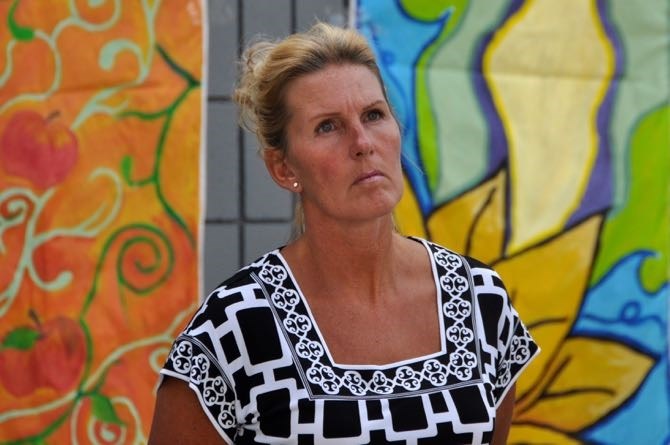
Image Credit: pixabay.com
October 14, 2018 - 7:00 PM
WEST KELOWNA - Everyone wants clean water without constant boil water notices, access to sewers, recreational facilities and fire coverage.
And parts of West Kelowna have that because they paid for it while other neighbourhoods still don't have them. Now that we are in one city, however, what happens when new services come in? Should the entire city pay for that? What about the residents who have already paid for it.
We'll admit, we could have worded our question better since we didn't get the responses we were looking for and only one candidate seemed to understand it.
We asked this question: West Kelowna is an amalgamation of different neighbourhoods with different ages and quality of services, from water treatment to roads and sewers. Is the future of the city in combining these debts and assets or keeping them separate? If combining them is the answer, how would you do this equitably?
Here are key points from the other candidates’ answers, and at the bottom of the page you can see their full response.
Bryden Winsby: While respecting the history and positive aspects of fire protection and irrigation districts, it has been the city’s aim to develop and maintain a unified approach. That’s been done successfully with what is now the West Kelowna Fire Rescue department and to a lesser degree with the five irrigation districts that comprise the water utility. It’s a single entity, but there are differing assets. For instance, those served by the former Westbank Irrigation District paid for a water treatment plant and should not have to pay for the treatment plant planned for Lakeview Heights and vicinity.
Rusty Ensign: Council has a plan to keep the water rates the same and pay off the debts within two years of each other for the Powers Creek System and Rose Valley System. Road improvements are done as needed. The sewage treatment plant is a regional function whereby all users pay equally. Upgrading of sewer lines is paid for by DCC’s and maintenance of the system is paid for equally by all users.
Doug Findlater: The tax rate is the same for all residential properties. Some services (garbage, recycling) are utilities and everyone pays the same rate. Sewer and water vary depending on whether a home receives those utilities and where it is located. The City is moving slowly toward a flat rate for water.
Jason Friesen: When we consider services such as water, roads, sewers, safety etc. there really is no room for us to be “equitable”, as these are all essential services which all of our residents deserve to have access to. There may be some limitations as to the “level” of services we can provide residents in some areas, but we do have to ensure that they are all safe.
Gord Milsom (for mayor): It is my understanding that all municipal assets and liabilities, including those of the former Irrigation Districts which were transferred to the City of West Kelowna on December 31, 2010, have been consolidated within the City’s financial statements for the past several years.

Rosalind Neis
(JOHN MCDONALD / iNFOnews.ca)
Rosalind Neis: Each neighborhood is unique and should be able to retain its identity – that said, when it comes to infrastructure and assets I believe we all benefit and should share equally the costs. Apart from infrastructure – services in my opinion should be user pay. If you don’t use – you don’t pay.
Gordon Wiebe: The first step to solving this problem is to fast track the construction of the Water Treatment Facility.
Carol Zanon: West Kelowna incorporated in 2007, and so we do combine debts and assets. In some instances, it takes time to complete.
Winston Wammer: There needs to be a plan that’s better than the present OCP that targets the issues to get all areas inclusive in infrastructure, recreation, and facilities. The city needs unification to make it a thriving community.
Jayson Zilkie: If we want to create a city that is unified, and that has one strong identity and voice, fragmenting services and creating further separation is not the answer.
Mary Mandarino (for mayor): Issues of water has been a prickly issue since incorporation because previous council did not do their due diligence. We are $11 million short and it looks like we have to raise taxes and borrow money. I feel we need a forensic audit to find out what has happened over the last ten years.
These candidates did not respond.
Philip Akins
Jerome Chung
Rick de Jong
Brad Dobbin
Joe Gluska
Stephen Johnston
Tiffany Pare
Full Responses
Rusty Ensign: For water, council has a plan to keep the water rates the same and pay off the debts within two years of each other for the Powers Creek System and Rose Valley System. This is equitable. As this is nine years away combining these debts and assets cannot be considered until then. Road improvements are done as needed in priority (based on) the ten year capital plan. The annual road rehabilitation plan also rehabilitates the roads that need it the most every year. The sewage treatment plant is a regional function whereby all users pay equally for operations. Several local service area sewage lines will be paid off in the near term. Upgrading of sewer lines is paid for by DCC’s and maintenance of the system is paid for equally by all users through the ten year capital plan and reserve contributions.
Doug Findlater: The tax rate is the same for all residential properties and you pay property tax according the assessed value of the property. Some services (garbage, recycling) are utilities (like a private utility) and everyone pays the same rate for these services. Other services such as sewer and water vary depending on whether a home receives those utilities and where it is located, and the municipal debt/interest against that service from the time it was developed . The City is moving slowly toward a flat rate for water and balancing out rate inequities that were inherited from RDCO and Irrigation Districts.
Jason Friesen: If combining them is the answer, how would you do this equitably? Not being a civil engineer, I can’t speak to the amalgamation of all the services with much confidence. When we consider services such as water, roads, sewers, safety etc. there really is no room for us to be “equitable”, as these are all essential services which all of our residents deserve to have access to. There may be some limitations as to the “level” of services we can provide residents in some areas, but we do have to ensure that they are all safe.
Mary Mandarino: Issues of water has been a prickly issue since incorporation because previous council did not do their due diligence. We are $11 million short and it looks like we have to raise taxes and borrow money. I feel we need a forensic audit to find out what has happened over the last ten years.
Gord Milsom: It is my understanding that all municipal assets and liabilities, including those of the former Irrigation Districts which were transferred to the City of West Kelowna on December 31, 2010, have been consolidated within the City’s financial statements for the past several years.
Rosalind Neis: Each neighborhood is unique and should be able to retain its identity – that said, when it comes to infrastructure and assets I believe we all benefit and should share equally the costs. Apart from infrastructure – services in my opinion should be user pay. – if you don’t use – you don’t pay.
Winston Wammer: There needs to be a plan that’s better than the present OCP that targets the issues to get all areas inclusive in infrastructure, recreation, and facilities. The city needs unification to make it a thriving community.
Gordon Wiebe: The first step to solving this problem is to fast track the construction of the Water Treatment Facility. The money is there.
Bryden Winsby: There was a time when the relationship between the two major areas of what was known as ‘The Westside’ was anything but friendly. Westbank and Lakeview Heights feuded over such things as fire protection, where a new high school should be located and who should pay for the building of an indoor swimming pool. I believe that much, if not all, of that animosity has dissipated. I would estimate that about half of West Kelowna’s current population didn’t live here 30 years ago when the feuding was at its height.
While respecting the history and positive aspects of fire protection and irrigation districts, it has been the city’s aim to develop and maintain a unified approach. That’s been done successfully with what is now the West Kelowna Fire Rescue department and to a lesser degree with the five irrigation districts that comprise the water utility. It’s a single entity, but there are differing assets involved, so it’s important to ensure that ratepayers are treated fairly. For instance, those served by the former Westbank Irrigation District paid for a water treatment plant and should not have to pay for the treatment plant planned for Lakeview Heights and vicinity.
We have several reserve funds, some of which are required by law and some whose existence is discretionary. Where appropriate, it might be advisable to combine or eliminate some of the latter.
Carol Zanon: West Kelowna incorporated in 2007, and so we do combine debts and assets. In some instances, it takes time to complete, as history, topography and measurement practices differed in various sections of the municipality. For instance, there were 5 water improvement districts, Westbank and Lakeview Irrigation District being the largest. They operated as independent units until 2010 and now follow the Water Master Plan recommendations.
Jayson Zilkie: If we want to create a city that is unified, and that has one strong identity and voice, fragmenting services and creating further separation is not the answer.
To contact a reporter for this story, email Rob Munro or call 250-808-0143 or email the editor. You can also submit photos, videos or news tips to the newsroom and be entered to win a monthly prize draw.
We welcome your comments and opinions on our stories but play nice. We won't censor or delete comments unless they contain off-topic statements or links, unnecessary vulgarity, false facts, spam or obviously fake profiles. If you have any concerns about what you see in comments, email the editor in the link above.
News from © iNFOnews, 2018